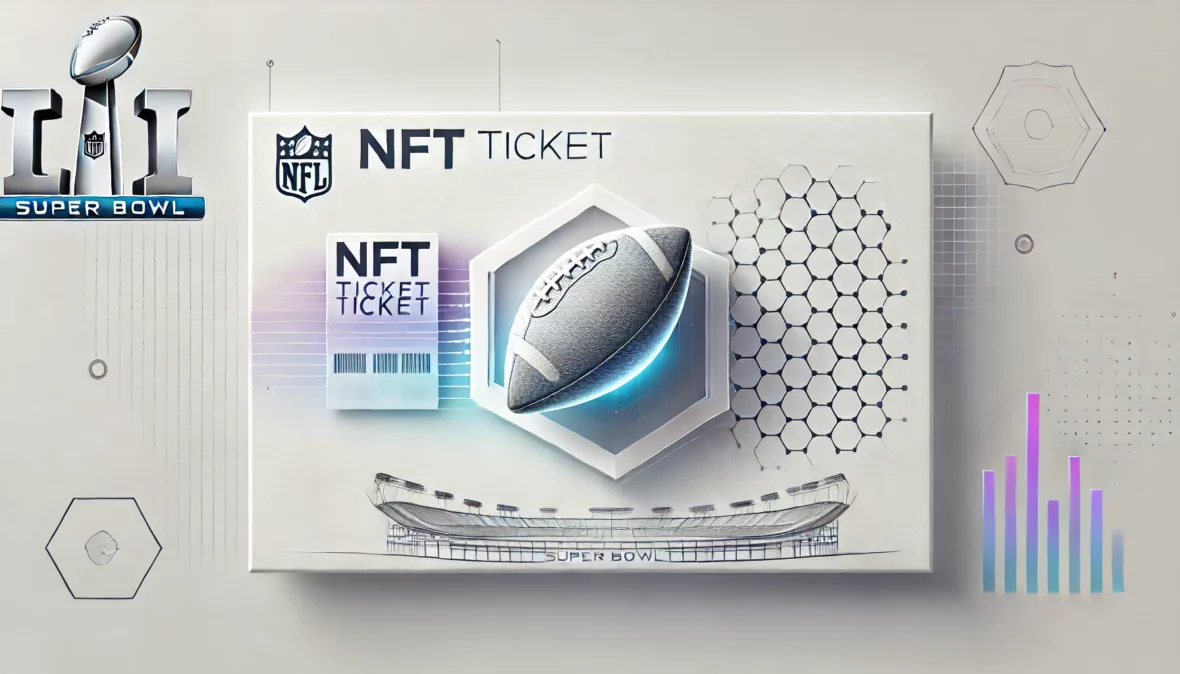NFT Technology: A Solution to Super Bowl Ticketing Problems

The Super Bowl, as America’s premier sporting event, has long faced challenges with ticket authenticity and distribution. Recent developments in blockchain technology offer promising solutions to these persistent issues. This article examines how Non-Fungible Token (NFT) technology is transforming the Super Bowl ticketing experience.
Understanding the Problem
Super Bowl tickets are highly coveted, creating opportunities for counterfeit tickets and price gouging. Traditional ticketing systems often struggle to verify authenticity, leaving fans vulnerable to fraud. Many enthusiasts have experienced the disappointment of purchasing invalid tickets or paying exorbitant prices on secondary markets.
What Are NFT Tickets?
NFT stands for “Non-Fungible Token” – a unique digital asset stored on a blockchain (a secure, transparent digital ledger). Unlike cryptocurrencies such as Bitcoin, which are interchangeable, each NFT is one-of-a-kind. When applied to ticketing, this means:
- Each ticket has a verifiable, unchangeable ownership record
- The ticket cannot be duplicated or counterfeited
- It exists as both an access pass and a digital collectible
- Ownership transfers are transparent and traceable
Super Bowl LVI: A Milestone in Ticketing Innovation
Super Bowl LVI marked a significant advancement when the NFL partnered with Ticketmaster to provide commemorative NFTs alongside traditional tickets. This initiative transformed ordinary tickets into collectible digital memorabilia while enhancing security.
Each NFT ticket served dual purposes:
- Providing event access
- Creating a lasting digital souvenir
Benefits of NFT Ticketing for Sports Events
NFT ticketing addresses numerous challenges facing traditional systems:
- Security
- Authenticity
- Collectibility
- Transparency
- Control
- Experience
- Memory
- Value
The technology virtually eliminates counterfeiting through blockchain verification. Every transaction is recorded permanently, allowing organizers and fans to track ticket history. Smart contracts (self-executing agreements with terms written into code) can control resale conditions, potentially limiting price inflation on secondary markets.
Beyond the Super Bowl
Following the Super Bowl’s lead, other major sporting events have adopted NFT ticketing:
- The Monaco Formula 1 Grand Prix implemented NFT tickets through Platinum Group
- Sports Illustrated launched “Box Office,” an NFT ticketing platform using Polygon technology
- Community sports events have begun exploring blockchain-based admission systems
Case Study: Mark’s Super Bowl Experience
Mark, a long-time NFL fan, purchased an NFT ticket for Super Bowl LVI. His digital ticket included:
- Access to the game
- A unique digital collectible commemorating the event
- Exclusive video content from pre-game warm-ups
- A discount on official merchandise
Even after the event, Mark retained his NFT as a digital memento, which later increased in value as a collectible. The transparent blockchain record confirmed his attendance at the historic game.
Future Possibilities
As this technology evolves, further innovations may include:
- Fan rewards
- Exclusive content
- Voting rights
- Resale limits
- Dynamic pricing
- Community access
- Digital memorabilia
- Event analytics
Smart contracts could potentially create fairer secondary markets by enforcing price caps or returning percentages to original sellers or event organizers. The customizable nature of NFTs also opens new avenues for personalized fan experiences and engagement.
Conclusion
The introduction of NFT ticketing at the Super Bowl represents a significant step toward solving long-standing issues in event admission. By addressing fraud concerns while enhancing the fan experience, this technology offers benefits to both organizers and attendees.
As blockchain technology continues to mature, we can anticipate more widespread adoption across sports and entertainment venues. The future of event ticketing appears increasingly secure, transparent, and capable of creating lasting connections between fans and their favorite events.
While NFT ticketing may not solve every challenge in the event industry, its implementation at high-profile events like the Super Bowl demonstrates its potential to significantly improve current systems and create new opportunities for meaningful fan engagement.
